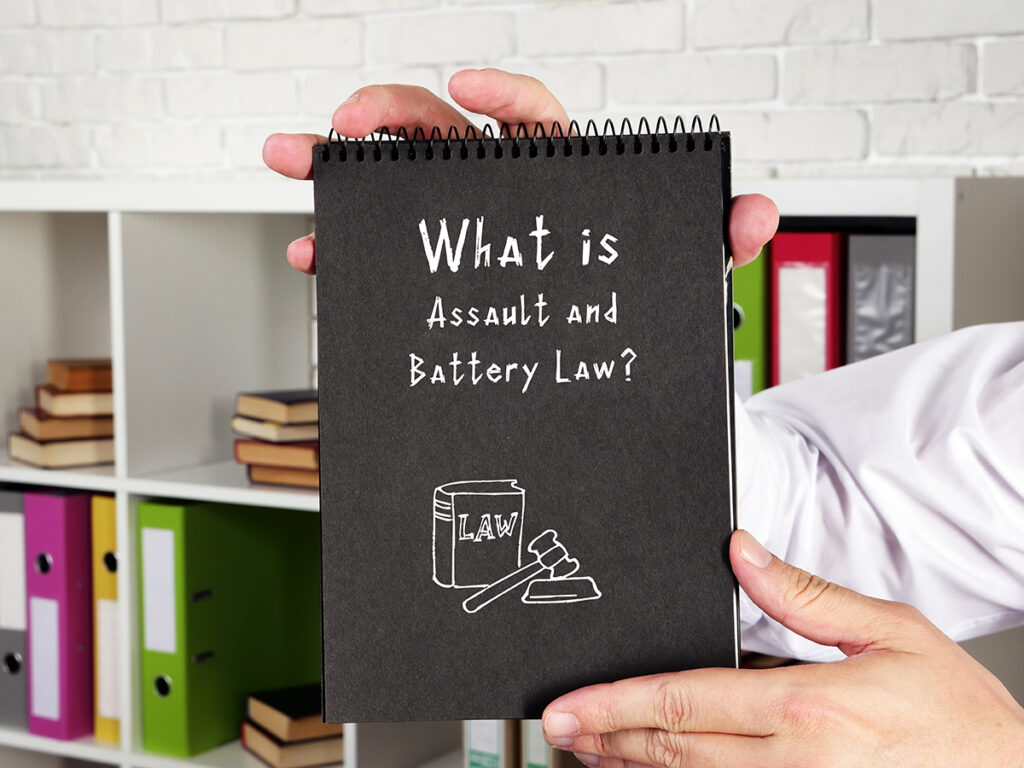Though people outside the legal community tend to conflate the terms “assault” and “battery,” California law defines them as distinct crimes with different implications. Anyone facing these serious accusations must understand what sets these two charges apart.
Definitions of Assault and Battery
State law defines assault as an unlawful attempt, coupled with a present ability, to violently injure someone else. Physical contact is not necessary for an assault charge; the essential elements are the attempt to cause harm and the ability to do so. In other words, you can still be charged with assault if you try to strike someone but miss.
According to California Penal Code 242, battery occurs when a person uses willful and unlawful force or violence upon someone else. You commit battery by pushing, hitting or otherwise physically striking another person.
Legal Consequences of Assault and Battery
The consequences of assault can vary widely depending on the case’s specifics.
- Simple assault is usually a misdemeanor in California. Convictions can result in up to six months in jail, fines up to $1,000 or both.
- Assault with a deadly weapon is a more serious charge that can be either a misdemeanor or a felony. Penalties can range from one year in county jail to four years in California state prison, plus fines up to $10,000.
Battery charges can also lead to significant penalties.
- Simple battery is typically a misdemeanor, punishable by up to six months in jail, a fine up to $2,000 or both.
- Aggravated battery that results in serious bodily injury can be a felony, leading to more substantial fines and longer prison sentences.
- Battery on a peace officer occurs when the victim is a peace officer or other protected official and the battery results in injury. The prosecution can classify this charge as either a misdemeanor or a felony, depending on the severity of the injuries and other circumstances.
Do You Need a Criminal Defense Attorney?
If you stand accused of committing assault or battery, you should hire a knowledgeable criminal defense attorney who can competently handle your case’s complexities.
- Developing a defense strategy: Your lawyer can argue that you acted out of self-defense, defense of others, lack of intent or, in some cases, parental right to discipline a child. Each approach requires nuance and a comprehensive grasp of your circumstances.
- Negotiating with prosecutors: An experienced attorney will confer with the prosecution to reduce the penalties or possibly even get your charges dismissed altogether.
- Trial representation: A skilled lawyer can represent you in court, presenting evidence and arguing on your behalf to achieve the best possible outcome.
Assault and Battery Criminal Defense Lawyers
Understanding the legal differences between assault and battery is crucial for anyone involved in a related legal dispute. Each charge carries significant penalties that can impact multiple aspects of your life.
Brower Law has extensive experience defending clients against assault and battery. Our firm’s understanding of California law and strategic defense tactics can protect your rights and secure a favorable outcome in your case. If you stand accused of these charges, do not hesitate to reach out to us for thorough and effective legal representation.

